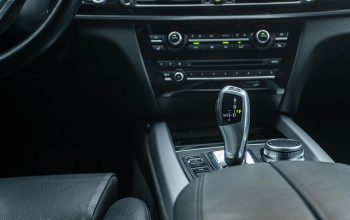When buying a car, understanding its history is crucial for safety and financial health. Check vehicle recalls using VIN checks or DMV records to avoid accidents and legal issues. A VIN check reveals accident records, ownership history, and service maintenance records, helping verify odometer fraud. Use reliable platforms like Carfax for comprehensive car history reports, addressing post-purchase issues promptly with detailed documentation. Stay informed about recalls and cross-reference odometer readings with service records to minimize financial loss and safety hazards from defective vehicles.
When purchasing a used car, doing your due diligence is paramount. Imagine driving home in what seems like the perfect sedan, only to later uncover hidden issues—unresolved vehicle recalls or even odometer fraud. This unsettling scenario highlights the importance of checking a car’s history through reliable services. A Vehicle Identification Number (VIN) check offers insights into accident records and mileage manipulation, safeguarding you from potential financial and safety risks. This article explores why such checks are vital, how to prevent common frauds, and the benefits of using reputable platforms like Carfax to ensure a peaceful ownership experience.
- Understanding Vehicle Recalls and Their Impact
- The Role of VIN Checks in Car Buying
- Common Odometer Fraud Schemes to Watch Out For
- How Car History Reports Protect Buyers
- Benefits of Using Reputable Services Like Carfax
- What to Do if You Discover Issues Post-Purchase
- Tips for Staying Informed and Proactive
Understanding Vehicle Recalls and Their Impact

When you purchase a vehicle, understanding its history is crucial for your safety and financial well-being. Vehicle recalls are an integral part of this history, indicating issues that require immediate attention. These recalls can range from minor fixes to more serious problems like faulty brakes or accelerated corrosion, which can pose significant risks on the road.
Ignorance of these recalls can lead to accidents, unexpected breakdowns, and even legal repercussions. That’s why a thorough check, using reliable tools like VIN checks offered by Carfax or DMV records, is essential before buying a car. This simple step allows you to stay informed about potential issues, ensuring both the safety of your drive and the value of your investment.
The Role of VIN Checks in Car Buying

When buying a car, performing a Vehicle Identification Number (VIN) check is an essential step. This unique 17-character code offers a wealth of information about a vehicle’s history, ensuring you’re making an informed purchase decision. A VIN check provides insights into accident records, previous ownership, and service maintenance, helping to uncover any potential issues.
It also plays a crucial role in verifying odometer fraud, as tampering with the mileage is a growing concern. By cross-referencing the provided mileage with the vehicle’s actual history, you can avoid buying a car that has been incorrectly reported on its condition or mileage, protecting your investment and ensuring safety standards are met.
Common Odometer Fraud Schemes to Watch Out For

Odometer fraud schemes have become increasingly sophisticated. One common tactic is “odometer rollback,” where a vehicle’s odometer is illegally adjusted to show a lower mileage than it actually has. This can be done by reprogramming the car’s computer system or physically tampering with the odometer mechanism. Another scheme involves using altered odometer cables or components, which display a falsified reading when connected to the vehicle’s computer.
To avoid falling victim to these scams, it’s crucial to obtain a vehicle history report from reputable sources like Carfax or check DMV records. These reports provide detailed information on a car’s mileage and service history, enabling you to verify the odometer reading and uncover any potential tampering. Regular maintenance records can also be a red flag; if a vehicle has been well-maintained according to the manufacturer’s recommendations, it’s less likely to have mileage manipulation.
How Car History Reports Protect Buyers

Car history reports are designed to protect buyers by providing a comprehensive overview of a vehicle’s past. These detailed records offer insights into critical aspects that can significantly impact a buyer’s decision. One of the primary concerns is accident history, which reveals if the car has been involved in any crashes, their severity, and the resulting repairs. This information is crucial as it highlights potential safety issues or structural weaknesses.
Moreover, these reports also check for odometer fraud, a growing concern where mileage is tampered with to increase a vehicle’s value. By verifying the reported mileage, buyers can avoid financial losses and unexpected maintenance costs. Accessing such records through reliable platforms ensures that consumers make informed choices, ultimately safeguarding their investment and ensuring peace of mind on the road.
Benefits of Using Reputable Services Like Carfax

Using reputable services like Carfax offers numerous benefits when checking a car’s history. These platforms have access to vast databases that include information from various sources, such as manufacturers, dealerships, and government records. This ensures you receive a comprehensive report detailing the vehicle’s past, including any accidents, repairs, and maintenance records.
One of the key advantages is the ability to verify the car’s odometer reading, which has become increasingly important due to rising reports of odometer fraud. Carfax and similar services provide an extra layer of protection by cross-referencing data, helping you avoid potential financial and safety risks associated with a vehicle that has been tampered with or misrepresented.
What to Do if You Discover Issues Post-Purchase

If you discover issues post-purchase, such as unresolved recalls or odometer fraud, don’t panic. Act swiftly by contacting the manufacturer or a trusted dealership to address these concerns. Document all communication and keep records of any repairs or replacements made. If necessary, consult a legal professional specializing in consumer rights to explore your options and ensure you receive fair compensation or resolution. Remember, proactive measures and thorough documentation are key to protecting yourself and securing a positive outcome.
Tips for Staying Informed and Proactive

Staying informed and proactive is key when purchasing a used car. One effective step is to regularly check for vehicle recall notices through reputable sources like Carfax or your local DMV. These platforms provide detailed reports on any outstanding recalls related to accidents or safety issues.
Additionally, verifying odometer readings is crucial to avoid odometer fraud. Many online tools and services allow you to cross-reference a car’s mileage with its historical service records. By staying vigilant and taking these proactive measures, you can significantly reduce the risk of financial loss or unexpected safety hazards associated with defective vehicles.
When purchasing a vehicle, staying informed and proactive is key. Regularly checking car history reports, utilizing VIN checks, and being vigilant against odometer fraud can help you avoid costly mistakes and ensure your safety on the road. Remember, peace of mind starts with knowing your car’s past.



